MB's Take
A positive interim Union Budget 2024

Finance Minister Nirmala Sitharaman presented the Union Budget 2024 on February 1, an interim budget, just ahead of the Lok Sabha elections. It has been appreciated by all the stakeholders of the healthcare industry. The full-fledged budget will be presented in July by the new government that comes to power following the general elections.
Post budget reactions
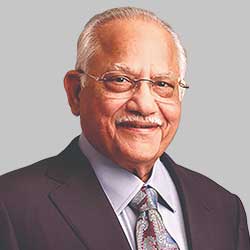 Dr Prathap C Reddy
Dr Prathap C Reddy
Chairman,
Apollo Hospitals
I am happy with the interim Union Budget 2024, presented by the Finance Minister.
We must bear in mind that education and healthcare are fundamental rights and I am glad that these cornerstones of growth have been addressed. With the rise in the disease burden globally and the acute shortage of trained health manpower, India is well positioned to Heal the World. I welcome the strategy to augment medical education by capitalizing on existing hospital infrastructures. Further, with the emphasis on skilling, India will emerge as a beacon for global workforce development, bringing financial stability to families and attracting foreign exchange.
Unless India heightens its focus on innovation and research, as a nation, we will not be able to overcome the looming disease burden, e.g., the alarming increase in AMR, undetected heart disease, and cancers. Innovative solutions to make healthcare accessible and affordable is truly the need of the hour. Hence, the creation of a corpus of ₹1 lakh crore to provide 50-year loans at low or nil interest rates to encourage the private sector to scale up research and innovate in sunrise sectors is commendable.
However, I remain concerned over the growing threat of non-communicable diseases (NCDs) and urge the government to consider increasing the tax exemption for preventive healthcare.
At large, though, the Union Budget 2024 is clearly a clarion call to action, rallying India toward a radiant future.
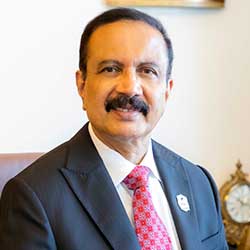 Dr Azad Moopen
Dr Azad Moopen
Founder and Chairman,
Aster DM Healthcare
In healthcare, we were hoping to see an increase in the GDP allocation of a minimum 5 percent for the sector; hopefully, this will be addressed in the complete Budget to be announced in July this year, under the new government. We are glad that the government is considering to add more hospitals in all districts in the country. We would recommend focusing on public-private partnerships (PPP) to address this. With all maternal and child healthcare to be brought under one scheme, this will be essential.
It is promising to hear that the government plans to open more medical colleges alongside existing hospital infrastructure. There is now an urgent need for comprehensive reform of medical education, to ensure that the medical professionals of tomorrow are trained in the latest medicine and techniques, like their Western counterparts.
 Viren Shetty
Viren Shetty
Vice Chairman,
Narayana Health
Recognizing the need for providing universal health care, the interim Union Budget 2024-25 extended the Ayushman Bharat scheme to cover nearly over three million ASHAs and Anganwadi workers. In a noteworthy move, the budget also unveiled a roadmap for addressing long-term capacity building by investing in healthcare infrastructure, and converting existing hospitals into medical and nursing colleges. This will go a long way toward addressing the skill shortage in the healthcare industry and create millions of jobs. These initiatives align with our commitment to provide comprehensive health coverage across all our hospitals.
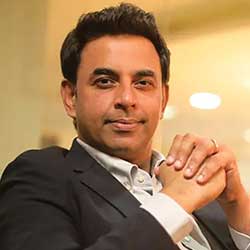 Raj Gore
Raj Gore
CEO,
Healthcare Global Enterprises Ltd. (HCG)
I appreciate the government’s push for a comprehensive health development for women in this budget. The budget announced other initiatives, such as comprehensive programs for maternal and child healthcare schemes, mission to eliminate sickle cell anemia by 2047, and setting up more medical colleges by utilizing existing hospitals. These steps will help in improving overall national health indicators in future. However, I strongly recommend an increased allocation to the healthcare sector in the upcoming post-election budget.
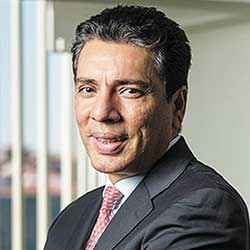 Vishal Bali
Vishal Bali
Executive Chairman,
Asia Healthcare Holdings
As per Indian Union Budget estimates for financial year 2023, the health sector in India was allocated 2.26 percent of the total union budget expenditure. This was a decrease from 2022’s revised estimates of 2.35 percent. In Budget 2023, health sector was allocated ₹89,155 crore a hike of around 13 percent as against ₹79,145 crore allocated in 2022. Since 2020, the share of the health sector as a percentage of the total Union Budget expenditure has continuously decreased. While the interim budget may only be directional but the key question from the sector is whether the government considers healthcare as a priority sector, which is a driver of GDP growth or a social enabler. A robust healthcare system drives GDP growth in the presence of adequate investments and a conducive environment by not only acting as a productivity and employment generator but also as a sector that attracts FDI and provides opportunities for innovation and entrepreneurship. A better healthcare ecosystem is essential for achieving India’s vision of being a developed nation and it needs a paradigm shift and exponential change in budgetary outlay. Thus the finance minister should accord priority sector status to healthcare and increase public healthcare spending to 2.5 percent of GDP in the Budget 2024.
 Himanshu Baid
Himanshu Baid
Chairman, CII Medical Technology Division & Managing Director,
Poly Medicure Ltd.
We welcome the interim budget 2024 for the healthcare sector. These initiatives underscore the government’s commitment to promoting preventive healthcare measures, enhancing access to medical services, and strengthening the healthcare infrastructure across the nation.
The government’s plan to establish more medical colleges by utilizing existing hospital infrastructure is praiseworthy, and will help address the shortage of healthcare professionals in the country.
The announcement regarding the establishment of new nursing colleges co-located with medical colleges is a positive development that will bolster the nursing workforce and enhance healthcare services across the country. Additionally, the mission to eliminate sickle cell anemia by 2047 underscores the government’s proactive approach toward addressing prevalent health challenges and improving public health outcomes.
The MedTech sector is willing to collaborate with the government and healthcare stakeholders to support the implementation of these initiatives and contribute to building a healthier and more resilient India.
 Rajiv Nath
Rajiv Nath
Forum Coordinator,
Association Indian Medical Device Industry (AiMeD).
The budget has fallen short of expectations for addressing the rising import graph of medical devices and soaring import bills worth over ₹63,200 crore (USD 8 billion). We do hope to see in the fine print action on the assurances from various government departments to implement the National Medical Devices Policy 2023 and make it attractive and profitable to make in India rather than import into India.
The Indian medical devices industry’s expectations were:
-
Increase in custom duty to a nominal 10 percent–15 percent and a predictable tariff policy;
-
Correction of inverted duty by levying health cess of 5 percent custom duty on the remaining medical devices (this was not earlier applied to all HS Codes). Cess is used for Ayushman Bharat;
-
Trade margin capping by monitoring MRP of imports (if over 10–20 times of CIF); and
-
Income tax benefits for project investments in medical devices manufacturing.
Supporting policies are needed so that the industry can make quality healthcare accessible and affordable for the common masses. This will also help aim to place India among the top five medical devices manufacturing hubs worldwide, and help end the 80–85 percent import dependence forced upon us and an ever-increasing import bill of over ₹63,200.
 Hariharan Subramanian
Hariharan Subramanian
Managing Director,
Siemens Healthcare Private Limited
In the fiscal year 2024-25 budget, the government revealed an ambitious plan for strengthening the healthcare sector in India. The emphasis on establishing medical colleges within the existing hospital infrastructures is game-changing, resulting in a significant rise of healthcare professionals while expanding and enhancing healthcare accessibility across the country.
The budget also embraces new technology and promotes digital transformation, setting the path for economic potential and cost-effective, high-quality healthcare services across India, fostering growth in the MedTech sector while emphasizing on achieving its vision of Atmanirbhar Bharat.
Overall, this budget aims to empower the healthcare sector for a healthier, stronger India.
 Chandra Ganjoo
Chandra Ganjoo
Group Chief Executive Officer,
Trivitron Healthcare
The 2024 budget reflects a strategic approach to healthcare, prioritizing maternal and child wellbeing, disease prevention, and the overall enhancement of the healthcare infrastructure. While specific measures for the MedTech industry were not detailed, we remain committed to delivering best healthcare solutions and investing in research and development to transform and evolve the MedTech sector.
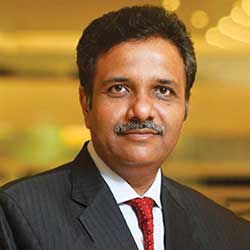 Hitesh Sharma
Hitesh Sharma
Partner, Life Sciences Leader – Tax,
EY India
Given the government’s perspective of keeping the interim budget an on-account vote, the Finance Minister did not dwell into any specifics, leaving the changes for the full budget post elections. While she spoke of the past performance, as far as the health science sector is concerned, there was some perspective on things to come in future.
There was a commitment to focus on setting up medical colleges in the existing hospitals, focus on women healthcare with encouragement of cervical cancer vaccination for young girls, maternal and childcare related schemes for improved nutrition delivery, early childhood care and development, etc. The focus on research and innovation was given a further boost by announcing a ₹1-lakh crore corpus for providing interest-free loans for long duration for research and innovation for private sector. Also the cover under Ayushman Bharat Scheme has been extended to cover ASHA workers, Anganwadi workers, and helpers.
While we will look at the full budget in July for more details, what is also positive is that there is an increase in outlay on health for FY25 versus the revised estimates for FY24. So overall the budget continues the path for growth of healthcare and access in India.
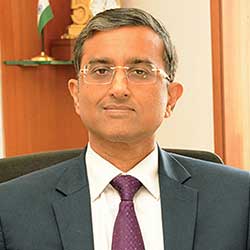 Gautam Khanna
Gautam Khanna
President Association Hospitals, and CEO,
PD Hinduja Hospital
The interim Budget 2024-25, with an allocation of ₹90,171 crore for health, aims to improve access to healthcare services and infrastructure in India. However, the budget also has not addressed the issue of nursing shortage and migration of nurses from India. We also await action on our demands on tax enhancement for skill enhancement initiatives and DNB programs undertaken by private hospitals.
We look forward to the budget’s key announcements being implemented, as well as an increase in health expenditure as a percentage of GDP. It would have been desirable if the government had implemented our long standing demand of either zero-rating GST for the healthcare sector with input tax credit or brought the healthcare sector under 5-percent GST with input tax credit to help create an attractive environment for domestic production of medical equipment, devices, and consumables. Also, to ensure support to the charitable trust hospitals, to continue serving quality healthcare for all, the inconsistencies in tax exemption scheme should be resolved, and the approval-based category of exemption under Section 10(23C) be merged with the tax regime under Sections 11 to 13.3.
Synergy between the government initiatives and operational objectives is paramount to fortify and enhance the Indian healthcare ecosystem, portraying a resilient and healthier India.
 Abrarali Dalal
Abrarali Dalal
Director & CEO,
Sahyadri Hospitals Pvt. Ltd.
This year’s Union Budget is a testament to government’s dedication to improving public health in the country. The focus on establishing more medical colleges will help in utilizing the existing hospital infrastructure and creating quality professionals in healthcare. To enable wider access of preventive care and health cover, there is an increased focus on vaccination for cervical cancer and extending health cover under the Ayushman Bharat scheme to ASHA and Anganwadi workers.
The consolidation of maternal and child healthcare schemes into a comprehensive program, alongside the expedited upgradation of Anganwadi centers and the rollout of the U-Win platform, reflects a holistic approach toward ensuring the wellbeing of women and children. These measures, coupled with the intensified efforts of Mission Indradhanush, signify a progressive leap toward a healthier and more resilient India. Mission Indradhanush is a critical health mission of the Government of India, aimed at achieving more than 90-percent full immunization coverage for children.
The mission’s goal complements the comprehensive healthcare approach outlined in Budget 2024, reflecting the government’s commitment to ensuring the wellbeing of all citizens through proactive healthcare measures.
The absence of specific allocations for AI in healthcare in this year’s budget, despite the previous focus on setting up a center of excellence in AI for health, overlooks the potential of AI in diagnostics and medical advancements.
 Dr Gayatri Kamineni
Dr Gayatri Kamineni
COO,
Kamineni Hospitals
We appreciate the government’s decision to extend healthcare benefits to ASHA and Anganwadi workers under the Ayushman Bharat scheme.
The initiative to establish additional medical colleges using existing infrastructure will address the shortage of healthcare professionals, promising better healthcare delivery and patient outcomes.
However, we are disappointed with the absence of GST reductions on essential medicines and tax concessions on generic pharmaceuticals in the budget. Affordable healthcare is vital, and these measures reduce the burden on patients while encouraging innovation.
We urge the government to rethink these aspects to ensure equitable access to essential medicines.
Overall, these budget initiatives underline the government’s commitment to healthcare. We look forward to collaborating to ensure their successful implementation to benefit all citizens.
 Dr Deepak Aiwale
Dr Deepak Aiwale
Chairman & Director,
Solaris Hospital
Well-structured and a forward looking budget toward health infrastructure and focus on a holistic approach to health is seen as a witness of the commitment to building stronger health systems in the country. The increased allocation for the National Digital Health Mission allocation fund from ₹140 crore to ₹341.02 crore is an admiring move but it requires a huge fund for health information technology (IT), telemedicine, and telehealth. The pandemic has brought the subject of mental health to the forefront. For the National Tele Mental Health Program, the budget allocation has been increased from ₹121 crore to ₹133.73 crore, which is a really appreciative push.
 Behram Khodaiji
Behram Khodaiji
CEO,
Ruby Hall Clinic
The decision to provide free HPV vaccines for girls between 9 and 14 years in the budget is a critical step in promoting the health and wellbeing of young girls in our community. By making these vaccines more accessible, we are taking a proactive approach to preventing HPV-related health issues in the future. This decision not only benefits the individuals receiving the vaccine but also serves to protect the broader population from the spread of HPV. Investing in the health of our young girls is an investment in the future of our society, as the budget focuses on poor, women, and youth who are the pillars of our country.
 Sugandh Ahluwalia
Sugandh Ahluwalia
Chief Strategy Officer,
Indian Spinal Injuries Centre
The paramount importance lies in capacity building within the realm of public health. A robust focus, particularly through the creation of more medical colleges in the country, is crucial. Assessing the practicality of integrating various healthcare programs and ensuring seamless implementation underscores the critical need for adequate resources. While acknowledging the positive aspects of the government’s initiatives, a cautious approach is urged to avoid disruptions in ongoing healthcare efforts.
 Dr Anand Bansal
Dr Anand Bansal
Medical Director,
Sri Balaji Action Medical Institute
The integration of nutrition delivery, early childhood care schemes, and other health programs into a comprehensive program is a holistic approach. We welcome such a move but stress the need for effective coordination among different departments to ensure seamless service delivery. Interdepartmental collaboration will be key to success. The government’s proactive approach to addressing the healthcare sector’s needs is commendable. Going forward, we need to have such innovative policies that not only strengthen the sector but also ensure affordable and quality healthcare for the 1.4 billion citizens.
 Prashant Arer
Prashant Arer
India Head,
Enbio Group AG
Union Budget has given a boost to research and innovations with a corpus of R₹1 lakh crore for long-term financing and refinancing. This is a welcome step. However, the government has not touched import duties in the interim provisions, we can expect this in the full budget by the next government. The tax rationalization would be necessary to gear up for an aspirational USD 50 billion MedTech economy. The heavy import duties on medical equipment affect operational costs. The MedTech industry was expecting a reduction of import duties, creating a win-win situation for both manufacturers and large hospitals.
 Sigal Atzmon
Sigal Atzmon
CEO & Founder,
Medix Global
Having worked across diverse healthcare systems, I can see that India is taking important steps toward building the next phase of its healthcare eco-system with a shift toward more affordable, data driven and accessible care. While there are still gaps in certain areas, the Union Budget’s dedicated focus on consolidating maternal and child health schemes reflects a wise approach to streamlining care delivery. Additionally, the announcement encouraging vaccination for girls to prevent cervical cancer is a proactive step toward prioritizing preventive healthcare for women.
 Dr Vishal Arora
Dr Vishal Arora
Chief Business Transformation & Operational Excellence,
Artemis Hospitals
In India the doctor-to-patient ratio is below the recommended levels by international organizations, such as World Health Organization (WHO). The same is concentrated in metros and urban cities resulting in the lack of access to quality healthcare for the people of Tier-II and Tier-III cities and villages, requiring them to travel long distances to avail basic healthcare needs, which in turn increases the overall healthcare expenditures.
Addressing this disparity is vital for enhancing the overall healthcare accessibility in India. The recent announcement in the budget by our Finance Minister regarding strengthening of the medical colleges network by utilizing the existing hospital infrastructure is a strategic and welcome decision.
This initiative promises to bridge the current gap in medical infrastructure by fostering a synergistic relationship between medical education and healthcare delivery. This approach, leveraging shared resources, is beneficial for both sectors and marks a significant step toward meeting the healthcare needs of the Indian population.














